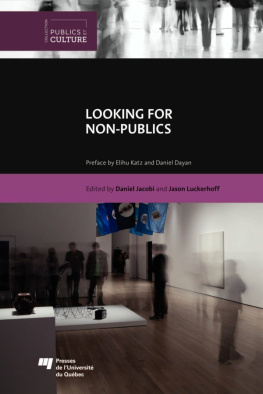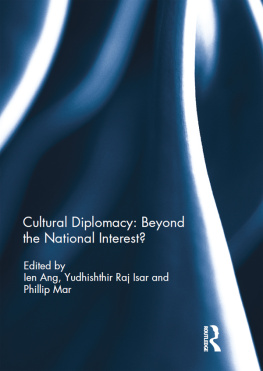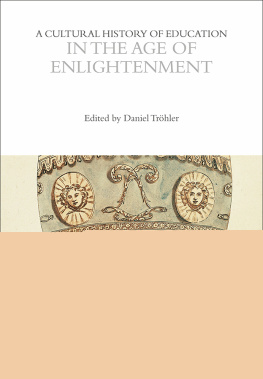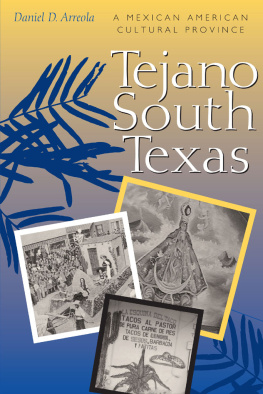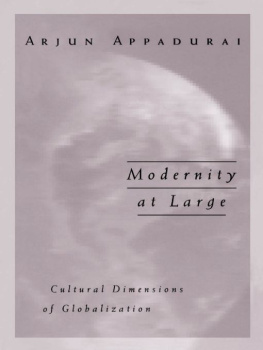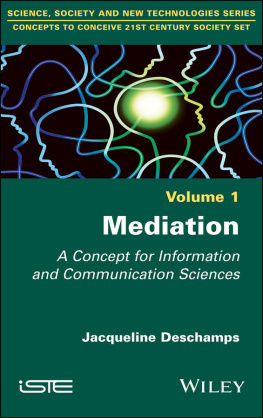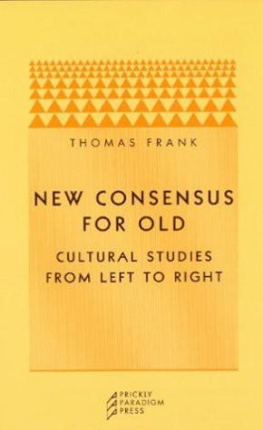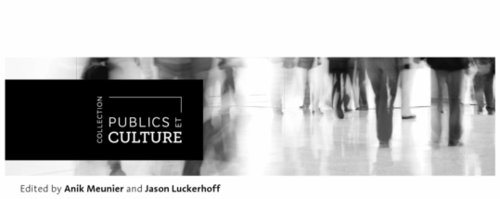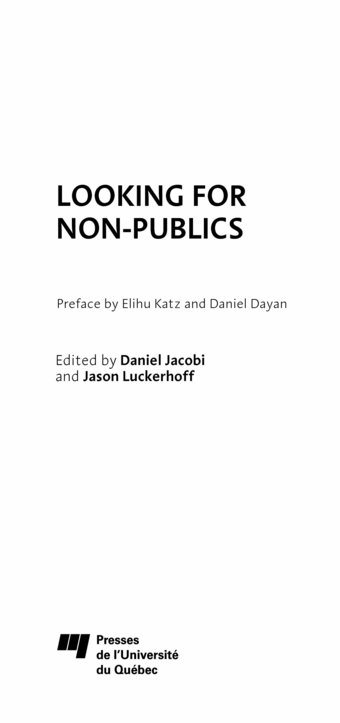The Culture et publics collection brings together original works on culture and its audiences. More specically, it explores the eld of cultural mediation, i.e., the analysis of cultural actors professional practices, the methods they employ, and their impact on different types of audiences. All forms of culture are included, from live performance to heritage and museums. The word publics ( audiences) is deliberately pluralized to emphasize the collections special interest in innovative forms of cultural mediation aimed at broadening access to particular forms of culture. In a museum context, the notion of cultural mediation obviously incorporates the concept of non-formal education, or in other words, the various forms of knowledge mediation that occur outside of school. These include the heritageand museumrelated mediation practices known as museum education.
The Culture et publics collection publishes works that analyze original mediation, interpretation, and communication techniques, or that draw on attendance studies or other surveys of cultural and museological practices. It includes theoretical, empirical, historic, and conceptual studies rooted in the humanities and social sciences, but with a particular focus on approaches used in communication, education, and museology.
| Presses de lUniversit du Qubec Le Delta I, 2875, boulevard Laurier, office 450, Qubec (Qubec) G1V 2M2 Telephone: 418 657-4399 Fax: 418 657-2096 Email: |
Bibliothque et Archives nationales du Qubec and Library and Archives Canada cataloguing in publication
Main entry under title:
Looking for non-publics
(Collection Culture et publics)
Translated from French.
ISBN 978-2-7605-3371-4
ISBN EPUB 978-2-7605-3373-8
1. Culture - Social aspects. 2. Audiences. 3. Arts and society. 4. Authors and readers. 5. Arts audiences. I. Luckerhoff, Jason. I. Jacobi, Daniel. III. Series: Collection Culture et publics.
HM621.L6613 2012 306 C2011-942 876-8
Les Presses de lUniversit du Qubec acknowledges the financial support of the Government of Canada for its publishing activities through the Canada Book Fund and the Canada Council of the Arts.
It also thanks Socit de dveloppement des entreprises culturelles (SODEC) for its financial support.
Translation: Claire Holden Rothman
Revision: Shayne Garde-Girardin
Layout: Alphatek
Cover: design Michle Blondeau
photo Laurent Rabatel, La Triennale qubcoise 2011
au Muse dart contemporain de Montral
2012-1.1 All rights reserved. No reproduction, translation, or adaptation without authorization.
2012 Presses de lUniversit du Qubec
Legal deposit 1st quarter 2012
Bibliothque et Archives nationales du Qubec / Bibliothque et Archives Canada
PREFACE
ON PUBLICS, NON-PUBLICS, FORMER PUBLICS, FUTURE PUBLICS, ALMOST PUBLICS, AND THEIR STUDENTS AND GENEALOGIES
Elihu Katz and Daniel Dayan
The central question of this book the question of non-publics triggers immediate curiosity. However, we ask readers to momentarily postpone the satisfaction of their legitimate curiosity and to accompany us for four brief prefatory explorations. The rst situates Jacobi and Luckerhoffs work in the context of intellectual history and stresses the diversity of disciplines that have dealt with publics. The second compares different sorts of publics and equally heterogeneous sorts of non-publics. Inspired by media studies, the third focuses on audiences and raises a paradoxical question: Could we propose audiences as examples of non-publics? Finally, the fourth asks whether the status of publics is that of discursive form or observable sociation.
We shall then leave the oor to Luckerhoff and Jacobi and their collection of systematic and carefully argued essays, hoping to have offered some useful contextualizations to their provocative book.
FIRST EXPLORATION: PUBLICS, NON-PUBLICS AND INTELLECTUAL HISTORY
Several strands of research contribute to the important issues addressed in this book. One strand can be traced to Gabriel Tardes (1898) proposal that the newspaper took crowds off the street and transformed them into publics. Publics, for Tarde, consisted of individuals reading about the issues of the day, forming opinions, coming together to discuss and, ultimately, act on them, notably by voting.
Following Tarde, sociologists at the University of Chicago proposed to distinguish not only between crowd and public, but between different types of crowds and the masses. (Blumer, 1939). These efforts gave rise to the branch of sociology known as collective behavior, which addressed the dynamics of fads, fashions, rumor, scandal, public opinion, and the like. It seems as if mainstream sociology became uneasy about these unstable processes, and it is a good guess to say that communications research became the beneciary of this unease.
Radically different denitions of the concept of public have since been proposed, ranging from people who are single-mindedly engaged, even for a short while, with an everyday issue or performance to individuals who are at least aware of each other, and/or estimate what similarly engaged others are thinking. Noelle-Neumann (1984), Price (1992), Herbst (1993), Dayan (below) and many others have grappled with this issue, sometimes echoing Tarde himself. But almost none of them have dealt directly with the non-public of the disenfranchised those who do not take part.
Two notable exceptions are public opinion research and political science. While defying more sophisticated denitions of public, public opinion researchers are deeply concerned about respondents who say dont know or give no answer. Although opinion pollsters do not use the term non-publics, they worry about them, at least for statistical reasons, especially those respondents who are not sure whether they will vote or not. As for political scientists concerned with the problem of non-voting, they come even closer to the problems addressed in this volume, from both normative and theoretical points of view.
More humanistically oriented students of audience also have a contribution to make (Butsch, 2008; Dimaggio & Useem, 1978; Livingstone, 2005).
Historians show how excluded citizens were ultimately invited into the noble courts to witness previously restricted performances, and how these paved the way for theaters and concert halls, which opened their doors to anybody who could afford the price of admission (R. Katz, 1986). This is where the non-publics of the arts came to prominence. Walter Benjamin (1968) thought that mechanical reproduction might enfranchise them.
Early research on radio anticipated Jacobi and Luckerhoffs interest in non-publics by some 60 years, but subsequently and unfortunately abandoned this missionizing. At the time, a group around Paul Lazarsfeld felt that the new medium might spur interest in reading and the arts among its mass audience. A good example is Edward Suchmans (1941) Invitation to Music: A Study of the Creation of New Music Listeners by the Radio. Suchman compared devotees who were raised on classical music from childhood with those who discovered it on the radio. One major nding of the study was that the newly converted were far more likely to be men than women. Indeed, Suchman (later amplied by Susan Douglas, 1999) goes on to suggest that radio tends to even out sex differences since it had made men more interested in music and women more interested in the news. Suchman also found that aspirants to upward mobility were among those who found radio music useful for their anticipatory socialization.

